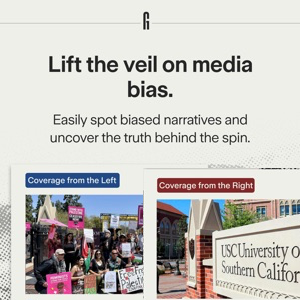In a groundbreaking display of self-awareness that left economists speechless and bartenders mildly surprised, a consortium of America’s most successful billionaires unveiled their long-awaited cure for poverty: “Lobby Like You Mean It.” This comprehensive, self-help guide promises to transform even the most cash-strapped citizen into a titan of industry, provided they follow these simple steps:
Step 1: Hire a Lobbying Dream Team (and a Personal Vending Machine Negotiator):
“The first step to financial freedom,” explained venture capitalist Bartholomew “Cash” Kensington III, adjusting his $20,000 monocle, “is securing the services of a top-notch lobbying firm. Think of them as the Sherpas of wealth accumulation, guiding you through the treacherous terrain of Capitol Hill.”
He elaborated, outlining the importance of a diverse lobbying team that includes not just seasoned political strategists but also a high-powered legal team, a team of zoologists specializing in the persuasive power of exotic animals (think trained dolphins lobbying for tax cuts), and, crucially, a dedicated negotiator specializing in securing favorable deals with vending machines.
“You might scoff,” Mr. Kensington smirked, “but have you ever tried reasoning with a malfunctioning vending machine demanding an extra dollar for a bag of stale chips? It takes a master negotiator to wrangle those corporate behemoths.”
Step 2: Network Like Your Net Worth Depends On It (Because It Does):
“Building relationships is the cornerstone of financial success,” expounded tech mogul Tiffany “Techwreck” Thornton, languidly reclining on a chaise longue woven from the finest Mongolian cashmere. “Forget reading self-help books, forget grinding away at minimum wage jobs. What you need are connections. The kind that come with attending exclusive charity galas where the champagne flows like the tears of the unemployed.”
Ms. Thornton elaborated on the importance of “strategic mingling,” advising readers to cultivate relationships with individuals who can “open doors,” even if those doors lead to yacht clubs where the entry fee is equivalent to a small nation’s GDP.
“Networking is not about merit,” she declared, adjusting a diamond necklace the size of a grapefruit. “It’s about projecting an air of wealth and success, even if you have to borrow a friend’s private jet for the afternoon just for the Instagram post.”
Step 3: Embrace the Grind (Of Choosing Yacht Paint):
“Contrary to popular belief,” remarked media magnate Bartholomew “Big Bucks” Billingsworth, polishing a gold-plated golf club, “the rich don’t get rich by accident. We work incredibly hard. Just ask my yacht captain. He can tell you all about the grueling hours I spend agonizing over the perfect shade of pearlescent white for my new yacht.”
Mr. Billingsworth elaborated on the various “hardships” billionaires endure, including the soul-crushing burden of deciding between private islands in the Caribbean versus the French Riviera for their next vacation, and the mental strain of delegating their vast fortunes to an army of accountants.
“It’s a constant struggle,” he sighed dramatically, wiping away a nonexistent tear with a $100 bill.
Step 4: Forget Meritocracy, It’s All About the “Billionaire Birth Lottery”:
“Look,” Mr. Kensington interjected, abandoning his monocle for a moment, “let’s be honest. The system isn’t fair. It’s a rigged game. You weren’t born into a billionaire family? That’s a terrible roll of the dice in the grand casino of life.”
He proposed a radical solution: the “Billionaire Birth Lottery,” a national lottery where only children born to families exceeding a net worth of $1 billion are eligible to win. “It levels the playing field,” he insisted, with a perfectly straight face.
Step 5: Join the “Poverty Elimination Program” (aka Become Our Personal Serfs):
The pièce de résistance of the billionaires’ plan is the “Poverty Elimination Program.” Under this revolutionary initiative, the poor are offered a path to financial freedom: become indentured servants to the very billionaires who claim to be solving poverty.
“Think of it as an internship,” Ms. Thornton chirped, “except instead of fetching coffee, you’ll be fetching our private helicopters and laundering our offshore accounts.”
The Takeaway:
“Remember,” Mr. Billingsworth concluded, adjusting his gold-plated cufflinks, “poverty is a choice. Choose wisely, and you too can join the ranks of the obscenely wealthy. Just remember to stay hydrated, because climbing the economic ladder is thirsty work.”
So there you have it folks, the billionaire’s foolproof guide to escaping poverty. Now, if you’ll excuse me, I have


